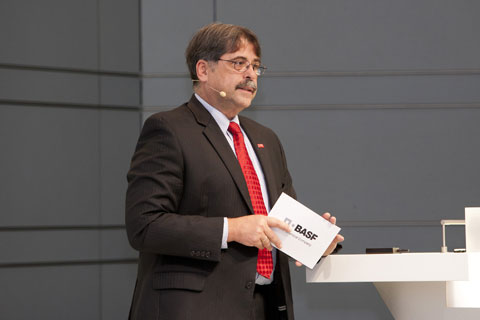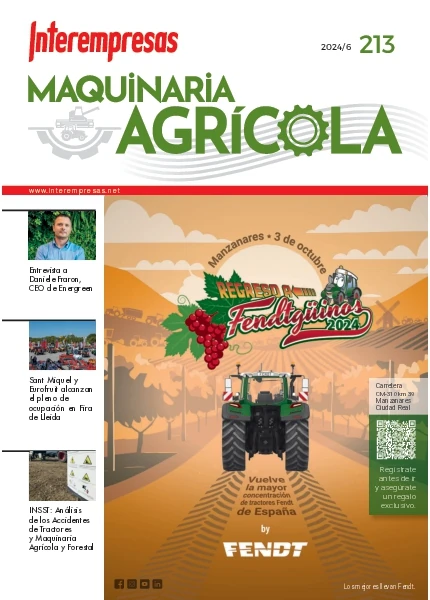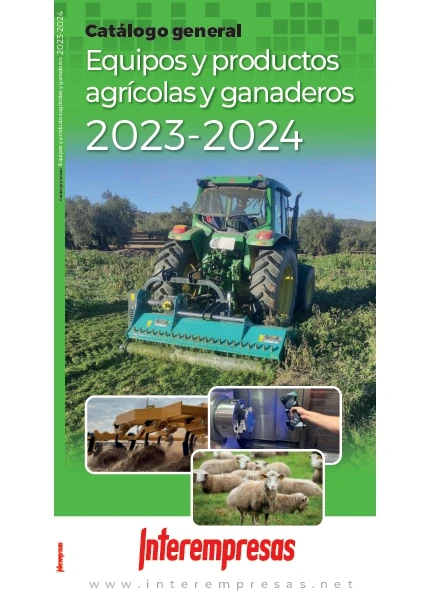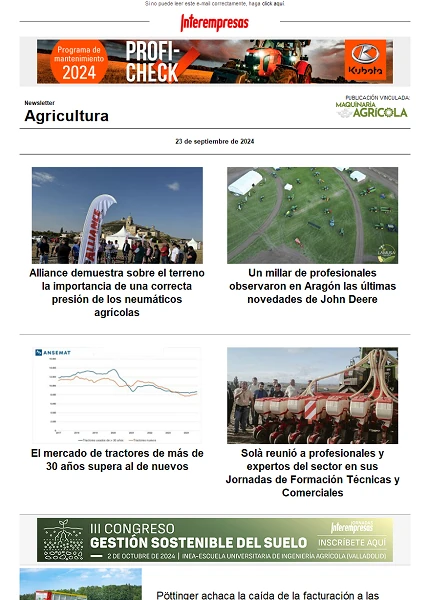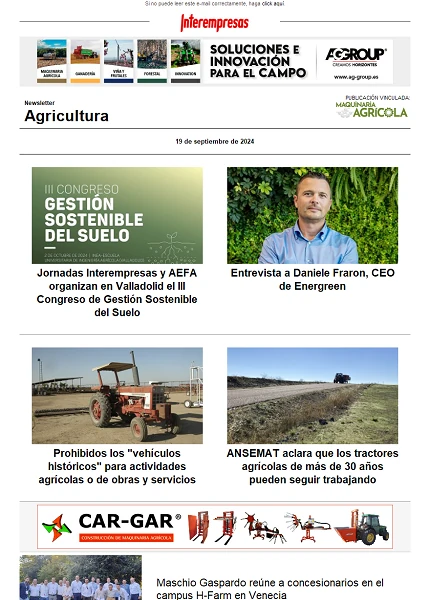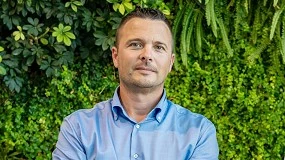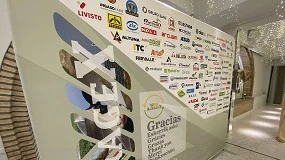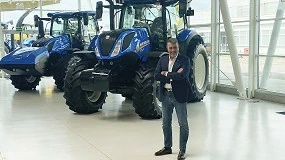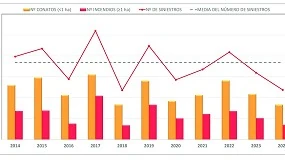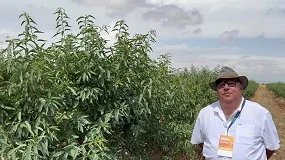Agriculturalist and consumer, more near of what seems
14 November 2011
The first of the conclusions of the study is for both protagonists of the alimentary chain. The agricultural activity means something more than a mere transactional activity, treats of a vocation based in the common values of the producers and of his communities. For the producers and consumers interviewed –300 and 1.000 respectively– in the six countries (Brazil, India, EE UU, Germany, France and Spain) this conception of social vocation consists of three key elements: offer to the people nutritious foods; back to the rural community and administer the earth and the environment.
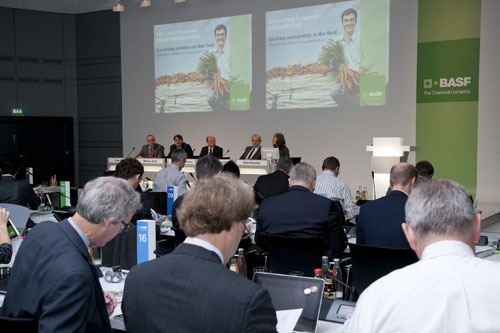
The results of the survey reveal also that the Spanish agriculturalist is not demásiado satisfied with his situation. Whereas in our country one of each two respondents are unsatisfied, in countries like EE UU or Brazil the satisfaction of the agriculturalist with his situation surpasses 70%. Has to take into account that this survey realised during the past months of June and July, in full effervescence of the crisis of the And.Coli, and that therefore some of the answers could be influenced by this fact.
Regarding the environment, follows having an important reproach by part of the consumers to the agricultural producers like managers of the environmental problems, especially in the Indian, France and Brazil. With regard to this vision, between the consumers polled, have been the Spaniards those that more at variance have been with this billed. Although the agriculturalists in his majority show a high degree of understanding by the interests of the consumers referred to the environment, do not think that these understand totally the magnitude of the challenge that poses the supply of foods and the constant balance that needs attain to answer to the need to feed the world, on the one hand, and to conserve the nature and environment, by another.
The producer sustains that to keep this balance, the consumer would have to be had to pay more by the products that obtain of a more respectful form with the environment, the government give subsidios to avoid that they go up the prices of the foods and the chemical industry produce products more amicable with the environment.
AgBalance, a universal tool to measure the sustainability
“Measure the sustainability has to base in some palpable criteria. Up to now it did not have of a tool that mediese the sustainability from a point of view holístico. By this reason, to finals of 2009 asked this tool to our department of sustainability, taking like base our experience of more than 15 years in the comparative evaluation of the sustainability in other fields. I think that the work has given his fruits, and show it the three independent certifications obtained by three expert organisms international: DNV Business Assurance, NSF International and TüV-Süd of Germany”, commented Stefan Marcinowski.
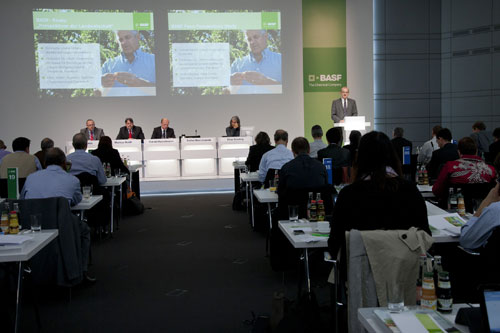
BASF Creates a new strategic unit: Sustainability and administration of products
With the aim to investigate further of the products and of the traditional methods of protection of crops, BASF has created also the unit 'Functional Care of the crops' (Funtional Crop Care), with the task to develop new and better forms to help to the agriculturalist to administer resources and reduce the stress in the crops, which contributes environmental profits and of performance. This new unit bases in three main groups of products: I handle of the water, vegetal health and handle of the nitrogen. The first results that contribute in shape positive to the profitability expect for the 2015, with a special importance in the Asian market. The group of products group under AgCelence, “appealing to the unsatisfied need in the market to help to the plants to surpass the stress improving his mechanisms of self-defence and helping them to take advantage of to the maximum the available resources”, as it manifested Markus Heldt, president of the Division Protection of Crops of BASF.
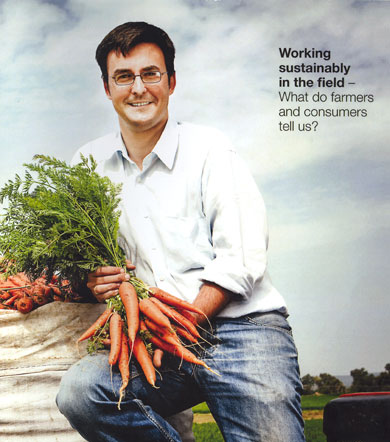
The multicinacional German does not forget of the vegetal biotechnology
In this difficult context, BASF, through his Division Plant Science, expects to carry in the next years to the market beside partners, plants that improve the performance of the agriculturalist, in addition to developing products with a nutritious value increased. The most recent example centres/centers in the sour grasos omega-3 of long chain, EPA and DHA, healthy for the heart, that find in the plants of canola. An agreement signed with the American company Cargill, pointer in the market of vegetal oils, expects to facilitate new applications that will offer to the customers a source of EPA and DHA convenient and easily available. It expects that the first products that contain oils of plants of canola with EPA/DHA omega-3 go out to the market to finals of decade. Another of the projects in course is the potato Fortuna, for the one who BASF expects to have the first permissions of commercialisation/commercialization for 2014/15.
- One of the six countries where has realised the survey has been Spain. Which peculiarities can find between the opinion of the agriculturalist and Spanish consumer and the one of the rest of countries polled?
What really has called me the attention has been the big acceptance of products genetically modified, so much by part of the agriculturalist as by part of the Spanish consumer. This has carried us to the conclusion that there where the agriculturalist and consumer have a direct contact with the culture of the genetically modified the acceptance finishes being elder.
- To what think that owes this difference with the rest ses European? It treats of a bet of the agriculturalist or of a Real by part of the consumer?
Exists less fear, fewer consortiums and a more rational treatment of the subject. Although it is necessary to say also that it treats of an acceptance especially in crop extensivo, and no so much in horticultural crop.
- AgBalance is the new tool of BASF for the agriculturalist. What will mean for the consumer?
The objective public of this tool is especially the politics, the science and the customers, already are the agriculturalists or other partners. To the consumer look forward to to offer him of this form a more documented analysis and transparent to the hour to compare the distinct systems of production, entering more cold numbers and fewer emotions in the discussions that realise on the future of the modern agriculture. It is a reality that so much agriculturalists like consumers are concerned by the environment, but many recognise at the same time that they do not have the sufficient knowledge as to give steps in the correct direction.
- has mentioned that AgBalance is based in 69 indicators. What measure and which weight have in each case?
The indicators are specific and regional, this wants to say that, for example, in Germany the weight that can have the indicator 'Water' is minimum, instead the 'Quality of the floor' results to have much more weight. For the social indicators have realised a social survey in each country and have asked to the consumer what is more important for them: biodiversidad, quality of the water, lower generation of waste, etc. All this is present in each one of the indicators, so that we know, so much of the customers as of the society, what is what really concerns them. If 69 they are a lot of indicators or few, do not know it. They were a lot of more, but have classified of such form that are auditables, transparent and that any organisation can use them. It does not pretend to be an exclusive tool, but an open database, and where each customer, but also any critic, can know in what has based each one of the decisions taken.
- His forecast is to sell in 2020 50% in his Division of Protection of Crops, arriving until the 6.000 million euros. It is not a very optimistic vision as they are the things?
I would say even that will reach the 6.000 millions, if the things follow as today, without big problems before this date.
- What objective has BASF for his Agricultural Division in Spain?
BASF in Spain has realised a very important progression, investing in proofs with specific crops, because it is not a market of wheat and barley. Also we have invested in projects of trazabilidad because Spain is a country that exports a lot to the rest of Europe and matters him extraordinarily be to the avant-garde regarding the transparency and security of the foods refers. Like example have the pilot project carried out with the chain of German supermarkets Rewe, where has wanted to elevate the confidence in the quality and security of the grape of table commercialised.
